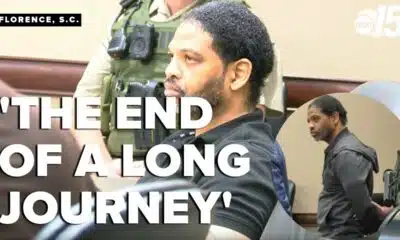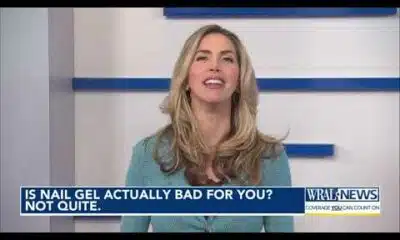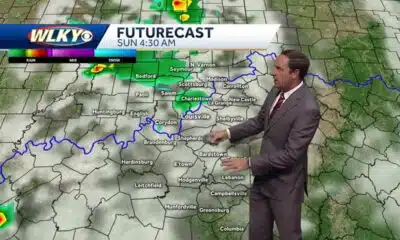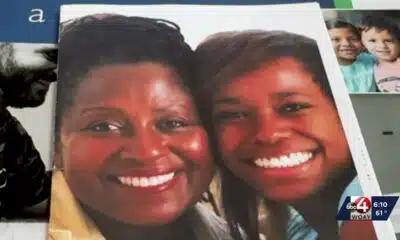News from the South - Virginia News Feed
Unlikely allies unite for probation reform, but Youngkin has final say
Unlikely allies unite for probation reform, but Youngkin has final say
by Charlotte Rene Woods, Virginia Mercury
February 25, 2025
Virginia’s criminal justice future is shaking up the status quo. In a departure from tradition, a probation reform bill is uniting unlikely allies across party lines.
Typically, criminal justice reform in Virginia is championed by Democrats with little Republican backing. However, this year, Del. Wren Williams, R-Patrick, has captured national attention by teaming up with Del. Katrina Callsen, D-Albemarle, on an ambitious probation overhaul.
In the Senate, Sen. Christie New Craig, R-Virginia Beach, advanced a version of the bill.
If enacted, the legislation would allow formerly incarcerated individuals to earn credits towards reductions in their probation terms by achieving key milestones that demonstrate their rehabilitation. These include securing employment for at least 30 hours a week, earning vocational certifications, participating in mental health or substance use treatment programs, and obtaining stable housing and health insurance coverage.
The measure, bolstered by Reform Alliance — a national criminal justice organization founded by rappers Jay Z, Meek Mill and others — is now headed to Gov. Glenn Youngkin’s desk. It also has the backing of the conservative-leaning group Americans For Prosperity, along with several Virginia-based criminal justice organizations such as Nolef Turns and The Humanization Project.
Advocates emphasize that the reform could significantly reduce recidivism — the cycle of reoffending that leads many back behind bars.
Despite Youngkin’s previous veto of a version of the bill carried by Callsen last year, reform supporters are optimistic. They point to the governor’s own initiatives aimed at reducing recidivism by supporting formerly incarcerated individuals.
Notably, just months after rejecting Callsen’s proposal last year, Youngkin issued an executive order directing state agencies to share data and coordinate efforts to help individuals connect to vital resources during their transition from incarceration to freedom.
Reform Alliance policy manager Shawn Weneta said the organization is “excited” to see that the bills advanced with “bipartisan support both within the General Assembly and within the advocacy community.”
“Hopefully (Youngkin) will sign this into law,” Weneta said.
Williams, who has served on the House Courts of Justice Committee with Callsen, was motivated to spearhead the legislation this year after observing a similar law enacted in Florida and recalling how President Donald Trump signed congressional prison reforms during his first term.
Williams stated that the bipartisan drive for probation reform is “recognition that the punitive approach has not worked.” He added, “By prioritizing rehabilitation, Virginia is building a more effective, efficient criminal justice system that benefits individuals, communities, and taxpayers alike.”
He emphasized that reducing probation can help formerly incarcerated individuals “rebuild their lives out of the American Dream” and contribute to creating safer communities for all.
While Lt. Gov. Winsome Earle-Sears did not comment directly on the legislation, she expressed a shared ethos behind the reform.
During a Feb. 12 segment on The John Fredericks Show, Earle-Sears explained that “we want to do as much as possible to ensure that we don’t spend the money twice.”
She was discussing broader access to educational and vocational opportunities for incarcerated individuals, aiming to help with employment and housing once their sentences are completed.
“If we can give them incentives then we can get them engaged, get them an education… Then if you have a job of course there’s something about work that dignifies the soul,” she said. “I’m all for lifting up that soul.”
Earle-Sears, who previously spent time in prison ministry before her election to statewide office, shared how such work offered a sense of l hope to people during times when it may be scarce.
She also spoke about providing housing to former inmates could reduce recidivism, helping individuals get back on their feet.
“You’re not gonna go steal and create mayhem to pay for shelter,” she remarked.
During the conversation, Fredricks also asked her specifically about the legislation, expressing that he is “in favor of” it. While she did not directly state her support, she pointed out the strong bipartisan support it received, meaning her tie-breaking vote wasn’t necessary.
Should Youngkin choose to not sign Williams’ and New Craig’s bill, the lawmakers could try again next year, with a different executive branch in place.
As Earle-Sears is running for governor, she could potentially have more opportunities to weigh in on a future version of the proposal.
YOU MAKE OUR WORK POSSIBLE.
Virginia Mercury is part of States Newsroom, a nonprofit news network supported by grants and a coalition of donors as a 501c(3) public charity. Virginia Mercury maintains editorial independence. Contact Editor Samantha Willis for questions: info@virginiamercury.com.
The post Unlikely allies unite for probation reform, but Youngkin has final say appeared first on virginiamercury.com
News from the South - Virginia News Feed
Area of interest forms in the Atlantic
SUMMARY: On September 11, 2025, Chief Meteorologist Tim Pandages reported on Hurricane Hub Live about tropical developments in the Atlantic and eastern Pacific. In the Atlantic, a low-chance area of interest near the Cabo Verde Islands may become Tropical Storm Gabrielle but requires favorable conditions. Recent tropical waves have struggled due to stable atmospheric conditions. Models show possible development east of the Leeward Islands with a likely recurving path away from Bermuda. In the eastern Pacific, Tropical Depression 13E has formed, expected to become Hurricane Mario, the season’s 8th hurricane. The Atlantic has had only one hurricane so far, Major Hurricane Aaron. Activity is expected to increase into October.
The newly formed area of interest could become Invest 92-L off the coast of Africa. Find out about that and more during tonight’s episode of Hurricane Hub LIVE! Livestream from Thursday, September 11, 2025.
Subscribe: https://www.youtube.com/user/wvectv/?sub_confirmation=1
Download the 13News Now app: https://bit.ly/13NewsNowApp
Watch 13News Now+ for free on streaming: https://www.13newsnow.com/13NewsNowPlus
Check out our website: https://www.13newsnow.com/
Like us on Facebook: https://www.facebook.com/13newsnow/
Follow us on X/Twitter: https://x.com/13newsnow
Follow us on Instagram: https://www.instagram.com/13newsnow/
News from the South - Virginia News Feed
Cat cafes, chromotherapy and pumpkin delivery: Here’s what’s new in RVA this September
SUMMARY: This September in RVA, Patch to Porch RVA delivers handpicked pumpkins from local farms, offering design, setup, and cleanup services for homes and events in Richmond, Henrico, and Chesterfield. Shore Pump introduces Beam Light Sauna, featuring infrared sauna and chromotherapy, promoting detox, skin renewal, and wellness with customizable sessions and memberships. The Fan now hosts River City’s first cat café, The Perfect Bean, combining a coffee bar with an adoptable cat lounge upstairs. Sourced locally, their drinks include seasonal, cat-themed specials. Cats come from Purring Hearts VA rescue, offering adoption opportunities, fostering community engagement and animal welfare.
What’s New in RVA is dedicated to informing you about the latest happenings in the Richmond area.
News from the South - Virginia News Feed
Congressional measure honors Angelina Resendiz, aims to help future servicemembers
SUMMARY: Texas Congressman Vicente Gonzalez has proposed legislation honoring seaman Angelina Resendiz, aiming to improve military accountability for missing servicemembers. Resendiz was reported as absent without leave (AWOL) more than a week before her death, prompting calls for clearer reporting on armed forces members found deceased under similar circumstances in the past decade. The amendment requires the Secretary of Defense to provide Congress with comprehensive reports on such cases, ensuring the military properly distinguishes between AWOL and duty status whereabouts unknown. Advocates argue this will enhance safety and accountability in the armed forces. A sailor is currently in pretrial confinement linked to Resendiz’s death, with a hearing scheduled for September 18 in Norfolk.
The lawyer for Seaman Angelina Resendiz’s family is speaking out after one Texas congressman introduced an amendment in honor of the sailor.
Subscribe: https://www.youtube.com/user/wvectv/?sub_confirmation=1
Download the 13News Now app: https://bit.ly/13NewsNowApp
Watch 13News Now+ for free on streaming: https://www.13newsnow.com/13NewsNowPlus
Check out our website: https://www.13newsnow.com/
Like us on Facebook: https://www.facebook.com/13newsnow/
Follow us on X/Twitter: https://x.com/13newsnow
Follow us on Instagram: https://www.instagram.com/13newsnow/
-
News from the South - North Carolina News Feed6 days ago
Reagan era credit pumps billions into North Carolina housing | North Carolina
-
News from the South - Alabama News Feed6 days ago
Amid opposition to Blount County medical waste facility, a mysterious Facebook page weighs in
-
News from the South - South Carolina News Feed6 days ago
South Carolina’s Tess Ferm Wins Miss America’s Teen 2026
-
News from the South - Kentucky News Feed6 days ago
3 states push to put the Ten Commandments back in school – banking on new guidance at the Supreme Court
-
News from the South - West Virginia News Feed7 days ago
National Grandparents Day (9-7-25) and the special bond shared with their grandchildren
-
Local News6 days ago
Duke University pilot project examining pros and cons of using artificial intelligence in college
-
Local News7 days ago
Marsquakes indicate a solid core for the red planet, just like Earth
-
News from the South - Missouri News Feed5 days ago
1587 Prime gives first look at food, cocktail menu ahead of grand opening in KC








































